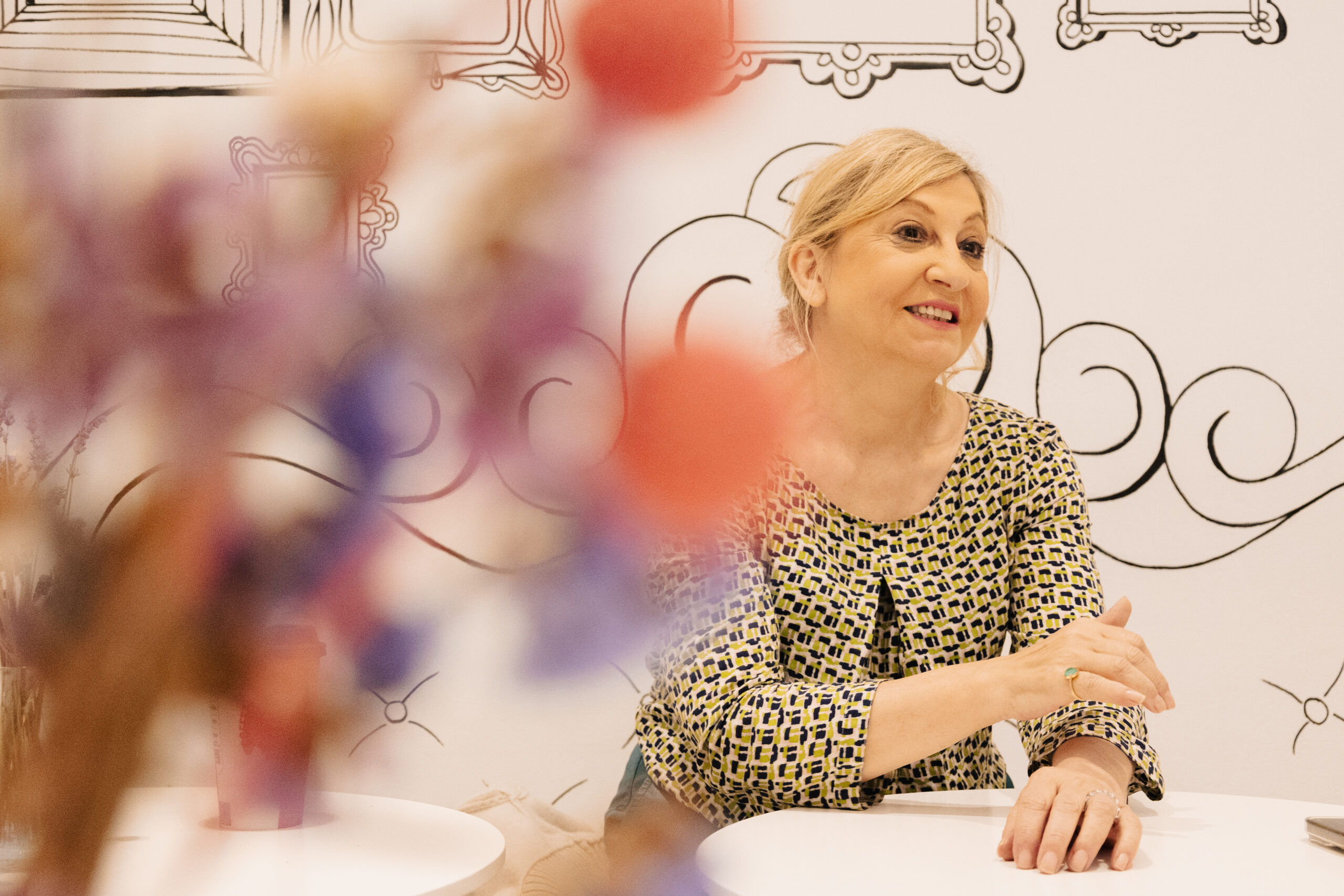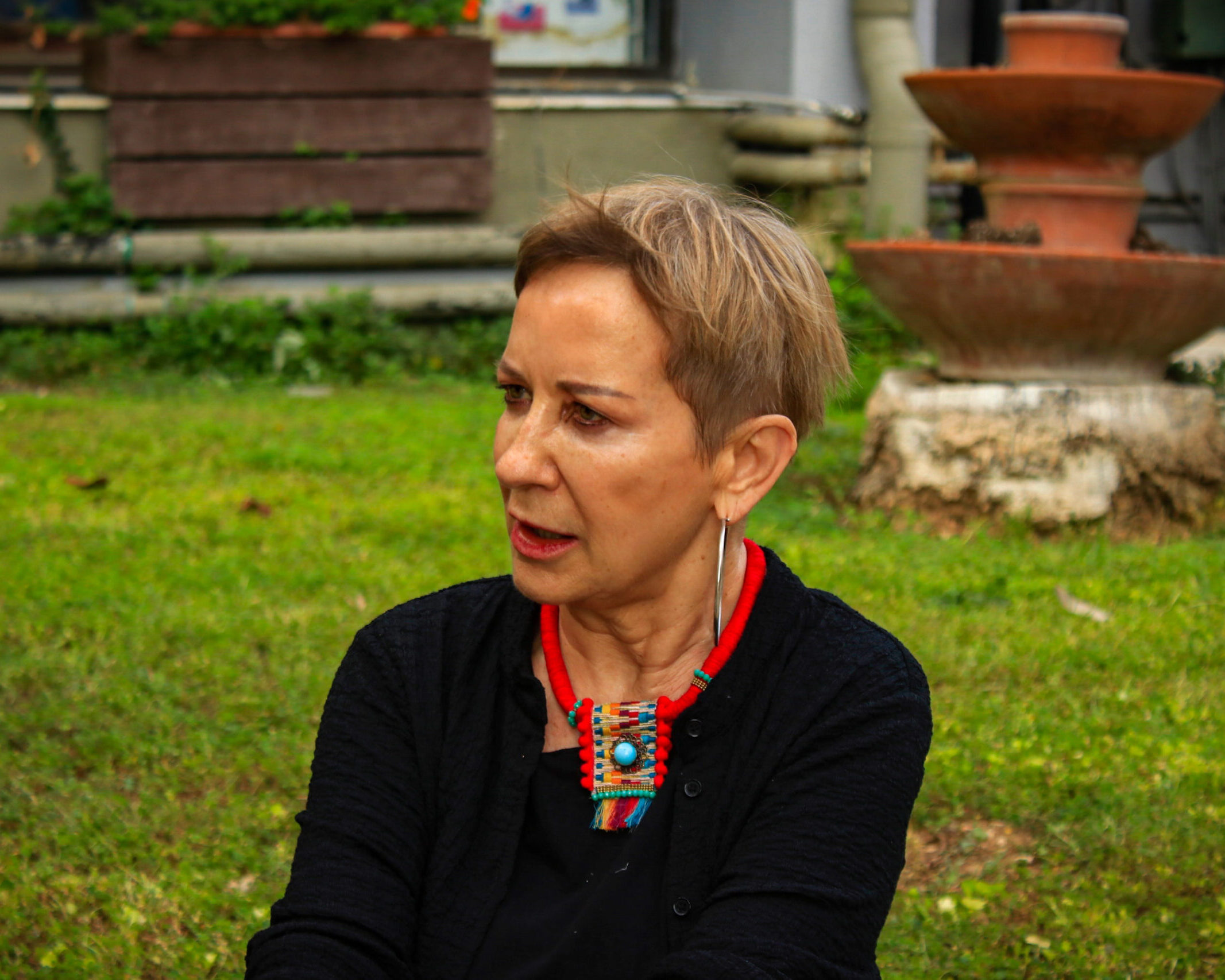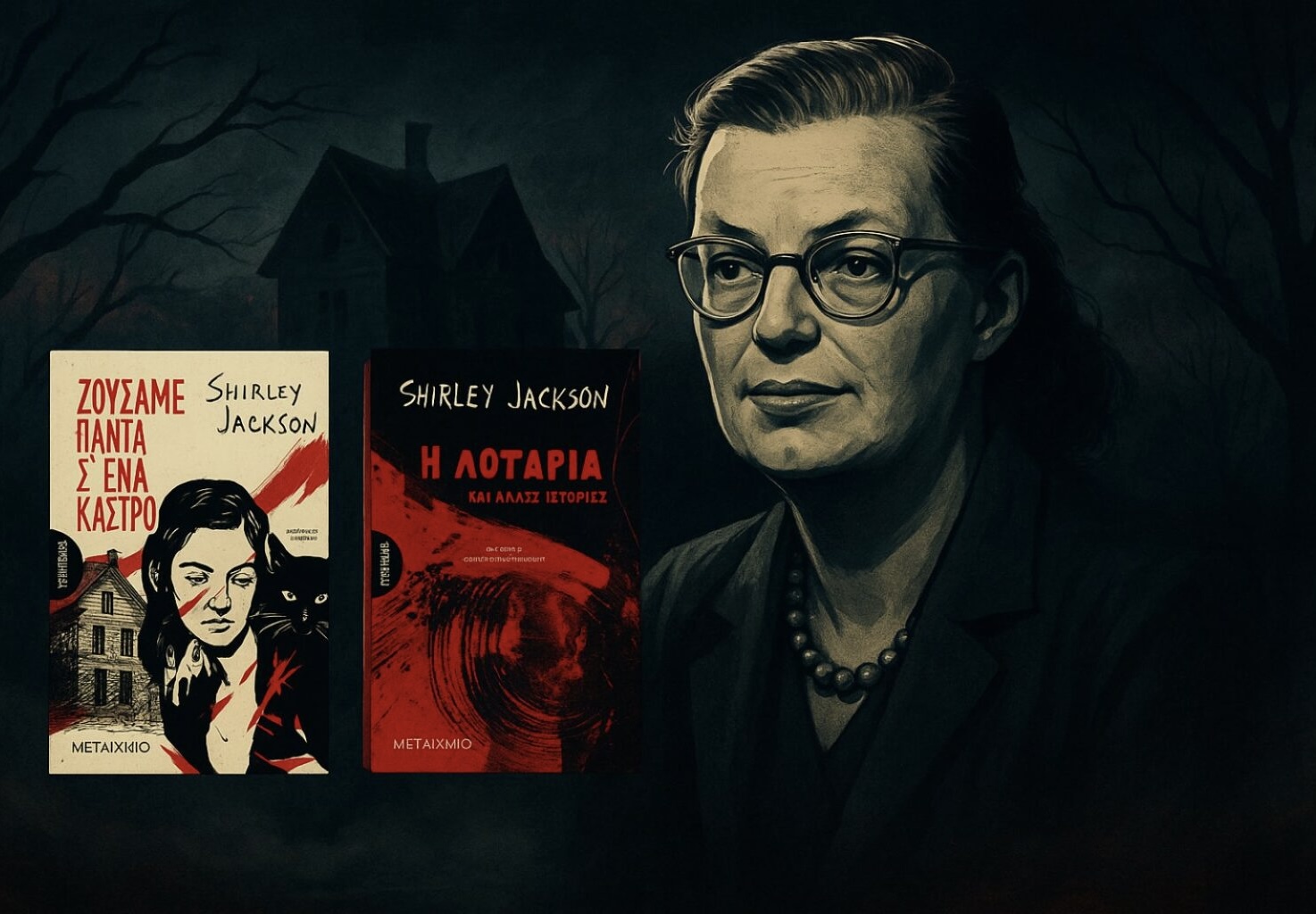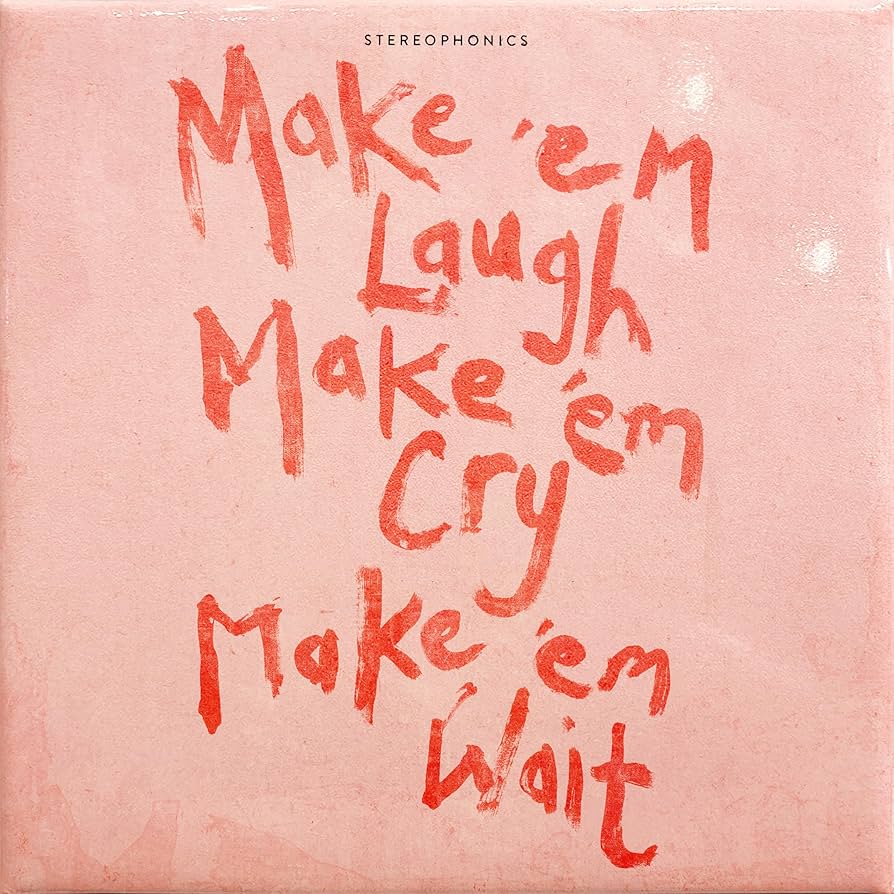I don’t know if Viv Albertine is a woman that needs no introduction (at least for the Greek non-punk listening audience). What I do know is that Viv Albertine is a woman who makes her introductions herself. In her autobiography, “Clothes Clothes Clothes Music Music Music Boys Boys Boys”, ranked as one of the “Best Books of 2014” by The Guardian, she describes thoroughly her life before, after and during “The Slits”, the iconic all-girl punk band she has been the guitarist of.
The punk music scene at that time is widely known but rarely portrayed the way Viv Albertine portrays it: truthfully, without hiding any detail about the difficulties of being a woman in a male-dominated world.
We took a leap of faith when we reached out to Ms Albertine’s agency, asking for this interview. We are really thankful to them and to her for this opportunity.
“The Slits” have many fans looking up to them not only in the UK or even Greece but all over the globe. We began the interview with Ms Albertine with a question about the band itself. What made “The Slits” a band and if the so-called “girl power” means anything to her. “The Slits were more like a gang or a family than a band. We went everywhere together, we stayed over at each other’s homes, we argued all the time. We discussed every tiny detail of our music and our presentation, from the rhythms, to the words to the melodies, to the lyrics. What we wanted to do is not follow in men’s footsteps, the men in bands that had gone before us.
We were very conscious of being one of the first female bands and we didn’t want to do it the same as the men, just copy how they wrote songs, how they stood on stage, how they dressed how they held and played their instruments. It took us a long time to do anything because there was so much discussion about not falling into habits and to keep our approach fresh and original and we had no role models. All that made us a band, an original band.
Girl power wasn’t a phrase at the time of the the Slits, I think it came about with the Spice Girls in the 80s. For me the phrase is quite commercial and trite. It doesn’t resonate with me at all. There was no action or ethos behind it.”
It is clear to whoever reads her book that Viv Albertine didn’t gloss over her era and didn’t hesitate to address the challenges of being a woman in the punk scene then. On what pissed her off then and still does: “What pissed me off then were the men in charge of the music business. They were condescending and arrogant and they could not understand us at all. They were so steeped in male rock music that they couldn’t even hear what we were doing as music or anything relevant to popular culture. It was a constant struggle to get gigs, to have our sound mixed well at gigs, to get a record contract, to find roadies. It was exhausting and if we hadn’t had each other and really believed in our music we wouldn’t have made a record or have got anything done. We would have given up.
I am still driven by anger which is not something I recommend if you can find another driving force. My anger stems from being told no all my life and from all the obstacles I encountered in my life from being a working class girl growing up in very restricted patriarchal times. I’m angry for the young girl I was, always being talked down to, limited and controlled to. Now I still feel a certain anger for the impact those attitudes had on me and other girls and women born in those times. And all the women born before those times!”

Her then boyfriend and later on The Clash guitarist, Mick Jones, were with her when she bought her first guitar. When asked if he had inspired her musically, Ms Albertine chose to focus on the women artists who had actually inspired her: “Mick Jones came with me to the guitar shop and I bought my own guitar. A Rickenbacker. I watched Mick work very hard at setting up a band, before the Clash, and I learnt from him how to set up a band. I didn’t learn anything musically from him. I wasn’t inspired musically by musicians, I had no role models.
My inspirations were women like Yoko Ono, Vivienne Westwood, French writers like Colette, Anais Nin and Georges Sand. I was inspired by any woman that I read about who had done something creative and rebellious. But Vivienne Westwood was the most important inspiration to me because what she did resonated with me and because she was the first female artist I’d ever actually me.”
In “Clothes, Clothes, Clothes, Music, Music, Music, Boys, Boys, Boys” one often sees the words “punk ethos”. We asked what this phrase means to her today. “Nothing. It’s the past. I was the same person before and after those times with the same values. A drive towards honesty and clarity and no bullshit and a lack of technical perfection”

The Slits first broke up in 1982. They reunited in 2005 for 5 years until the lead singer, Ari Up passed away from cancer. Viv Albertine didn’t give up on music and eventually began writing her own original songs and performing. When asked how it felt taking the stage by herself, she answered: “It was scary to take the stage by myself. I had never thought of myself as a singer (I can’t really sing in tune) and I’ve never wanted to be a front person but I had to do it because I had written songs about my life as a fifty year old woman which I thought were good and radical and there was no one else who could put them across. I still think the songs are good. I had to pick up the guitar again and learn how to play it again. It took about 18 months to get to a punk standard. I was surprised that even though I hadn’t written a song for 25 years I still knew how to do it (being honest doesn’t go out of fashion). I worked with some very interesting open minded and supportive musicians and that made it a good experience.
I stopped playing guitar again in 2014 the night my mother died and I haven’t gone back to it since or missed it at all. There’s something so old fashioned about standing on a stage, elevated above everyone else like you’re something special, performing a song and then everyone clapping. It makes me cringe.”

Her first book has been a major success mainly because of her original way of writing and that made us wonder about how one finds that writer’s voice within them and trusts it: “I’ve been scared with everything I’ve attempted to do as I have not been trained in any of the disciplines I’ve chosen to work in. When I started to write I didn’t know if I was even going to get to the end. I was not thinking of achieving success. I did find my voice after about a year of writing and I went back and rewrote what I’d already written. It takes me a long time to write a book as I’m not following a genre or a template. I think of my books as pieces of work not books. I’m very aware of my lack of formal training so I keep going over and over the words before I hand the writing to a publisher. I don’t ever release music or writing unless I think it’s good at the time.”
The iconic Vivienne Westwood, one of the people that defined punk culture (between other things she dressed “Sex Pistols” who were managed by her then partner Malcolm McLaren), passed away last year at 81. There is a beautiful story in the book, about her selling Viv Albertine a pair of red boots. Although she didn’t think they would suit her at first, she loved them later on. We ask her if she still has the boots and what the era-defining designer means to her. “I still have the red boots. They were really big for me when Vivienne sold them to me, but now they fit me! I don’t think they have ever dated. That is something I always aim for, work that doesn’t date. I think if you tap in to your own individual person and emotions, and are brave and honest, what you make doesn’t date.
As I said earlier, Vivienne Westwood has been the biggest artistic influence of my life. She was bold and iconoclastic and confident, highly intelligent and innovative. She led the way. You can’t imagine how rare she was at the time. And she didn’t smile appealingly at men. She was extraordinary.”
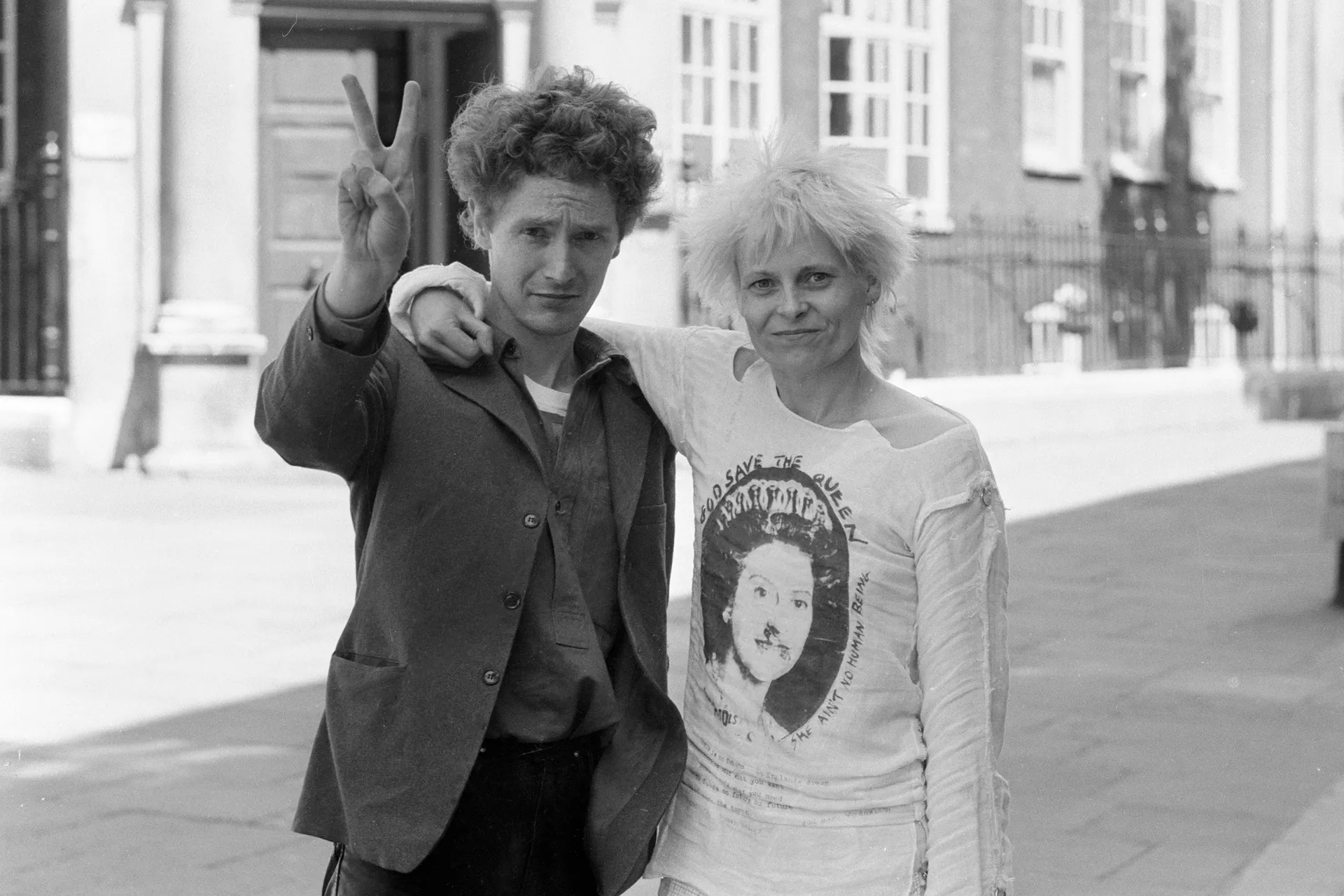
We tell her that her book reveals her to be a woman who is proud of her successes as well as of her failures. She comments on the statement: “I’d put it the other way round, I’m proud of my failures as well as my successes. My successes have been few and not financial. My failures have been many and very financial (in a bad way). I’m glad that today failure is talked about as a learning tool which it has been for me but it didn’t used to be spoken about. You were supposed to hide failure. As I was going up. Just as you were supposed to hide unhappiness, ill health, bad marriages, mental health problems, money troubles. Stupid times.”
In the second half of the book it is revealed that she was diagnosed with cervical cancer, six weeks after giving birth to her daughter. When it came to her battle with the disease she commented:“I think it’s different for everyone. Some people come out of it raring to go and take on life, it left me nervous about my health and cautious. I’m not going to pretend otherwise. Having cancer and surviving it has made me more compassionate and able to talk to others who are ill without fear of saying the wrong thing (even though I do sometimes say the wrong thing, it’s better than ignoring people who they’re ill) or fear of illness.”
Her other book, released in 2018, has the title “To Throw Away Unopened”, after an instruction her mother gave her before she passed away, regarding some diaries she kept.In our question about grief and on whether writing has helped her she responded: “I haven’t ever got over my mother’s death. I was far too close to her I realize now. One of the reasons I was so close to her is I liked her best out of anyone I knew (except my daughter but she wasn’t born until I was 43). No one thought like my mother, she was a very original thinker and an avid reader but not formally educated past 16 or 17 years old. She did take exams later in life. That’s partly why I was so drawn to Vivienne Westwood, she was the same sort of one-off original thinker.
I’ve been grieving my mother for ten years, ever since she died. Losing her has kicked the spark out of me. I don’t think the spark will ever return so I have to navigate life without that spark. That’s just how it is. I’m spark-less. I’m also more reflective and insular, I can work with that. Writing didn’t help.”
We also wondered if we can hope for more books from her in the future. “Yes a couple more books are on their way. One about all the visual work I’ve made in my life since I was 16. You can see the same mind running through the work I was trying to make at art school (which I left before finishing) that formed the Flowers of Romance and The Slits and wrote the books. You can see the disruptor in me trying to find an outlet. The work isn’t polished or fully realized but I think it’s interesting to see a mind groping for an idea through images.
Because the work was shocking or ‘female’ or out of its time it never really developed. The tutors at art school, like the gatekeepers in the music industry, didn’t get it, didn’t like it, didn’t want to know. But the ideas are still there, it’s not developed work but it’s groping for something that I manage to realize later through music and writing. I still think visually more than in music and words.”
We concluded the conversation by asking if the punk concept is to be found in people nowadays. “Not many people chose to be so-called ‘punks’ at the time. There was only a small cohort in the 1970s. It’s not the same to say you are punk or have a punk spirit now, out of context, when the times are so different. Being a ‘punk’ in the 1970s was like being a disgusting slimy hated invading alien in the 1940s.
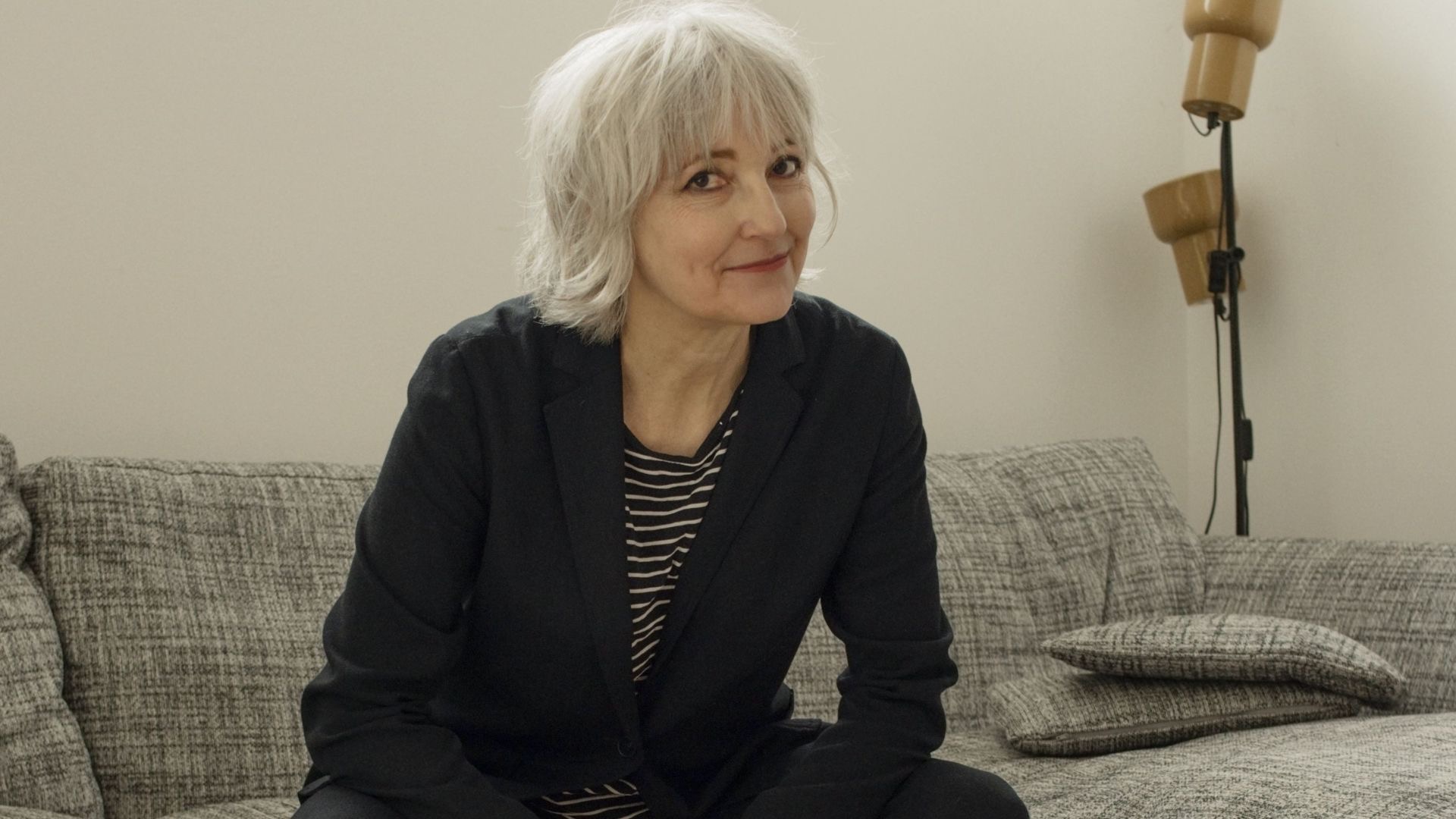
Punk has been romanticized and misremembered. No one wanted you. Society wanted to kill you, eliminate you. You were welcome nowhere. It was not an easy or an attractive option for a young person. Especially not a woman. It certainly wasn’t a safe option and most (not all) people would still rather take the safe option. And I don’t blame them .If I had been someone who could fit into society I would have chosen the safe option too. I’d like my daughter to take the safe-ish option. There are parallels now but we are in different times.
I say to you what I say to my younger friends, you have absolutely no idea what it was like and how different I am to you. How different you had to be, to be a woman born in those times and live the life I’ve lead. That’s why almost no one did it then and almost no one is ‘punk’ now. Over and out.”
Συνέντευξη: Αφροδίτη Κεραμέως & Άννα Μπαλή








